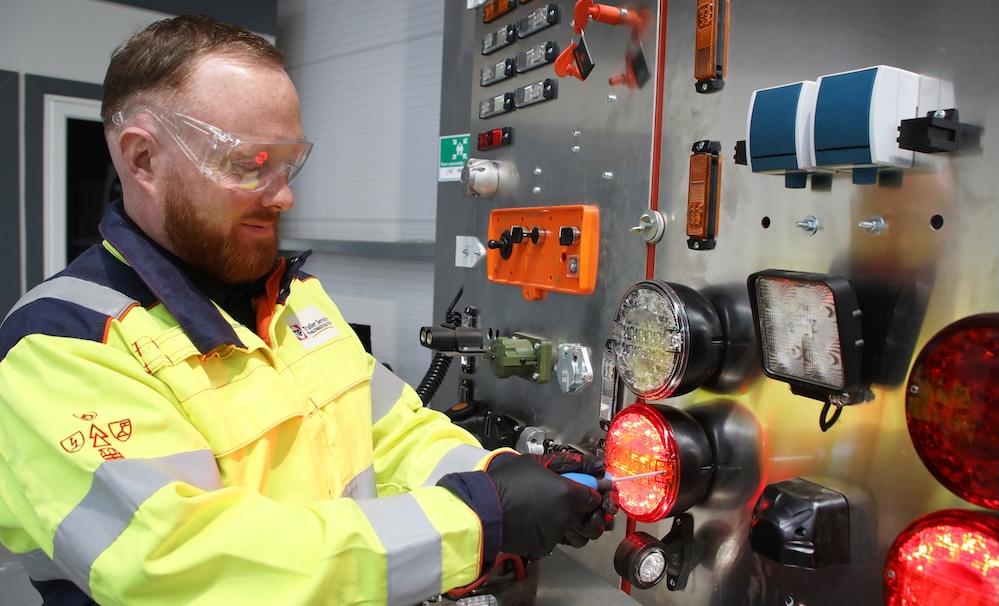The role of a line manager is crucial within any organisation, serving as a bridge between senior management and the frontline workforce. A successful career in line management requires a blend of technical skills, leadership qualities, and effective communication. Line managers are responsible for not only supervising the daily activities of their teams but also for fostering a productive and positive work environment. To thrive in this role, one must continuously develop their abilities and adapt to the changing demands of the workplace. This article delves into key areas essential for building a successful career in line management, offering practical advice and strategies to help line managers excel in their roles and contribute significantly to their organisations.
Developing Leadership and Communication Abilities
Effective leadership and communication are at the heart of successful line management. As a line manager, your ability to inspire and guide your team is paramount. Leadership is not just about giving orders but about motivating your team, setting clear expectations, and providing the support they need to succeed. Good communication skills are essential for conveying your vision, expectations, and feedback effectively.
Developing these skills involves active listening, being approachable, and fostering an open-door policy where team members feel comfortable sharing their ideas and concerns. Regular team meetings and one-on-one check-ins can also enhance communication, ensuring that everyone is aligned with the team’s goals and objectives. Additionally, constructive feedback is crucial. It helps employees understand their strengths and areas for improvement, contributing to their professional growth and the overall success of the team.
Managing Teams and Enhancing Productivity
Managing a team effectively is a critical responsibility for any line manager. It involves coordinating tasks, setting priorities, and ensuring that the team works harmoniously towards common objectives. Enhancing productivity starts with understanding each team member’s strengths and weaknesses and assigning tasks that match their skill sets.
Clear and achievable goals are fundamental to driving productivity. Establishing key performance indicators (KPIs) and regularly reviewing progress can help keep the team focused and motivated. It’s also important to provide the necessary resources and support to help your team perform their duties efficiently. This includes access to tools, training, and any additional assistance they might need.
Encouraging collaboration and fostering a culture of accountability are also vital. When team members feel responsible for their tasks and understand the impact of their work on the overall success of the project, they are more likely to stay engaged and productive. Recognising and rewarding achievements can further boost morale and productivity, making the team feel valued and appreciated.
Creating a Positive Work Environment
A positive work environment is essential for fostering employee satisfaction and productivity. As a line manager, it’s your responsibility to cultivate a workplace where team members feel valued, respected, and motivated. This starts with promoting open communication and ensuring that everyone’s voice is heard. Encouraging feedback and showing appreciation for hard work can significantly boost morale.
Creating a positive atmosphere also involves recognising and addressing any conflicts promptly and fairly. Implementing team-building activities can enhance camaraderie and collaboration among team members. Additionally, ensuring that the physical workspace is comfortable and conducive to productivity plays a significant role in maintaining a positive environment.
Offering flexibility in work arrangements, such as remote working options or flexible hours, can also contribute to a more positive work environment. This flexibility demonstrates trust and respect for employees’ personal lives, leading to increased job satisfaction and loyalty. Ultimately, a positive work environment is one where employees feel empowered, engaged, and committed to achieving their best.
Continuous Professional Development: Training and Education
Investing in continuous professional development is crucial for any line manager looking to advance their career and enhance their team’s performance. Engaging in regular training and education helps you stay updated with the latest management practices and techniques. Participating in line management courses can provide valuable insights and practical skills that are essential for effective leadership.
When choosing a line management course, it’s important to select those that are well-regarded and align with your career goals. A recommended line management course should cover key areas such as conflict resolution, performance management, and strategic planning. These courses often include real-world case studies and interactive sessions that can enhance your learning experience.
Furthermore, encouraging your team to undertake relevant training can lead to overall improved performance. Promoting a culture of learning within your team not only benefits individual employees but also contributes to the organisation’s success.
Strategic Planning and Goal Setting for Line Managers
Strategic planning and goal setting are critical components of effective line management. As a line manager, it’s essential to develop a clear vision for your team and outline the steps needed to achieve it. This involves setting specific, measurable, achievable, relevant, and time-bound (SMART) goals that provide a clear roadmap for success.
Begin by assessing the current performance of your team and identifying areas for improvement. Collaborate with your team members to set realistic and attainable goals that align with both organisational objectives and individual aspirations. Regularly reviewing and adjusting these goals is crucial to ensure they remain relevant and achievable.
Strategic planning also involves anticipating potential challenges and developing contingency plans to address them. By staying proactive and prepared, you can navigate obstacles more effectively and keep your team focused on their objectives. Additionally, involving your team in the planning process can foster a sense of ownership and accountability, enhancing their commitment to achieving the set goals.
Effective goal setting and strategic planning not only drive productivity but also help in identifying opportunities for growth and development within the team. This approach ensures that your team remains aligned with the organisation’s vision and is continuously moving towards achieving its targets.
Balancing Workloads and Avoiding Burnout
Balancing workloads and preventing burnout are critical responsibilities for a line manager. Overworked employees are less productive and more prone to errors, stress, and dissatisfaction. As a line manager, it’s essential to monitor your team’s workload and ensure that tasks are distributed fairly and realistically.
Start by assessing the capacity and capabilities of each team member. Regular check-ins can help you understand their workload and identify any signs of stress or burnout early. Encourage your team to take regular breaks and use their vacation time to recharge. Implementing flexible work schedules can also help employees manage their work-life balance better.
Prioritising tasks and setting realistic deadlines are essential. Use project management tools to track tasks and ensure that no one is overwhelmed. Delegating tasks appropriately and empowering your team members to take ownership of their work can also alleviate excessive workloads.
Promoting a healthy work culture that values well-being and recognises the importance of rest and recovery is crucial. By taking proactive steps to balance workloads and prevent burnout, you create a more sustainable and productive work environment where your team can thrive and perform at their best.
Conclusion
Building a successful career in line management requires a combination of strategic planning, continuous development, and a deep understanding of team dynamics. Effective line managers are those who can lead with confidence, communicate clearly, and foster a positive work environment. They understand the importance of ongoing professional development through line management courses, staying current with industry practices and improving their skills.
By implementing effective conflict resolution techniques, leveraging technology to enhance management practices, and ensuring balanced workloads to prevent burnout, line managers can significantly impact their team’s performance and morale. The journey to becoming a successful line manager is continuous, demanding adaptability and a commitment to both personal and professional growth. As you apply these principles, you will not only advance your career but also contribute to the overall success and efficiency of your organisation.








